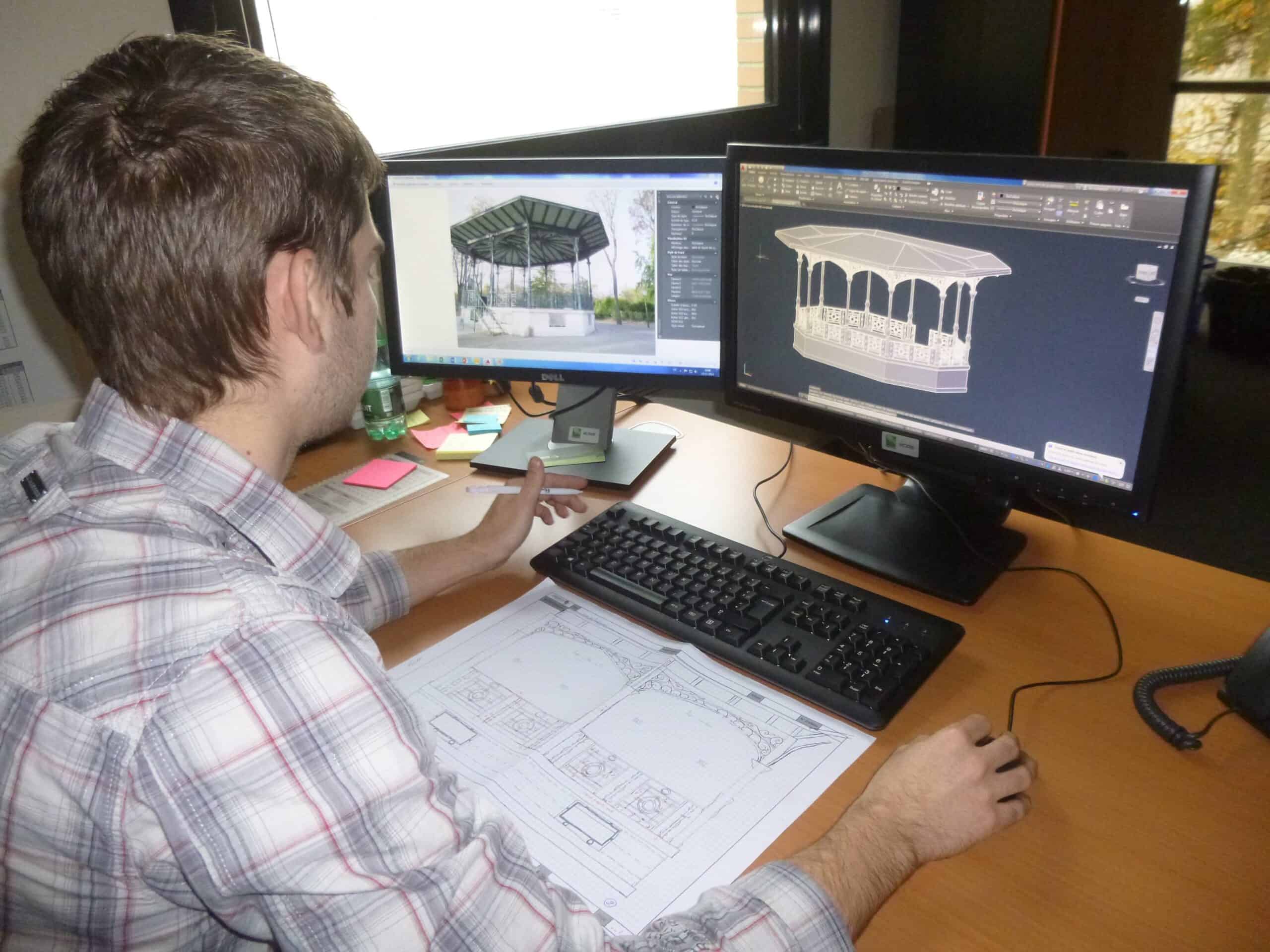Our structural expertise to meet your needs:
- Assess the performance of your existing structures or buildings in their current state of conservation (building, civil engineering, engineering structures)
- Design the actions to restore structures’ initial level of service or increase their resistance capacity (concrete, metal, masonry and wood)
- Assess the feasibility and design your modification or rehabilitation projects (bridge widening, replacement of bearings, modification of the operating methods, building raising, etc.)
Surveying Existing Structures:
On-Site Testing, Mechanical Tests, and Instrumentation
- Non-destructive testing of structures (cover meter, radar, 3D tomography, etc.). Learn more about our testing tools – structures and materials.
- Measurement of residual tension of prestressing cables using the “cross-bow” tensile measurement method.
- Surveying of the geometry of structures using in-situ measurement campaigns, infrared readings, photogrammetry, and 3D scanning. Learn more about our digital inspections.
- Verification of reinforcements (passive reinforcements, prestressing reinforcements) by delicate concrete chipping.
- Sampling and compression tests on concrete cores or masonry blocks to assess their residual strength. Learn more about our analysis and testing laboratory.
- Visual classification, sampling, and mechanical characterization of wooden structures (solid wood, glued laminated timber).
- Sampling and tensile tests on steel and puddled iron samples.
- Instrumentation, the establishment of alert/alarm thresholds, supervision, and treatment of measurements, interpretation, an monitoring. Learn more about our Monitoring solutions.
Assessing the Existing Structure: Studies, Modeling, and Recalculation
Our structural engineering office engages in structural recalculation on a daily basis. Sixense’s experience in this field has enabled us to develop a solid verification methodology.
This effectively combines flexibility and thoroughness.
- Its flexibility allows us to process input data, which is often incomplete, and to meet multiple needs: operational changes, analysis of defects, changes in the structure or its environment, taking a degraded state into account, etc.
- Its thoroughness guarantees the reliability of our conclusions, which is vital in terms of structural safety and property management.
The main stages in our methodology:- Documentary study (structural file, old regulations, etc.)
- Determination of the relevant normative and regulatory standards
- Pseudo-regulatory approach (adaptation of safety coefficients, regulatory criteria, etc.)
- Taking into account the state of conservation of the structure (residual resistance of materials, cracking, corrosion, degradation of ductility capacities, etc.)
- 3D finite element modeling (Nemetschek SCIA Engineer® software, Graitec Advance Design®, Autodesk Robot Structural Analysis® and CESAR LCPC®)
- Use of any instrumentation data and modeling calibration
- Verification of structural safety, serviceability, fire resistance time
- Identify the origin of the defects, assess their harmfulness
- Assess the residual lifespan
Conducting Work on the Existing Structure: Making it safe, Repairing, or Reinforcing
The immediate consequence of our studies is deciding what actions to take.
Our engineering office has developed cutting-edge expertise in repair and reinforcement solutions, from the simplest to the most innovative. Our active technology watch ensures that we can always offer the technologies most suited to our customer’s needs: optimized cost and implementation time, minimal impact on operations, etc.
The techniques we practice daily in our studies include:
- Additional prestressing
- Bonded composite material
- Shotcrete
- Ultra-high performance fiber-reinforced concrete (UHPC)
- Underpinning by micro-piles
- Jacking
- Structural injection
- Repair of wooden structures using composite rods
- Repair of metal structures by welding, bolting, riveting, etc.
- Emergency shoring or reinforcement
Modifying Existing Structures: Supporting Your Projects
Your structures need to adapt to your changing needs.
Our structural expertise is at your service throughout all stages of your projects to adapt existing structures from feasibility studies to execution studies.
Examples:
- Building raising project
- Changes to the operation of a building
- Replacement of the roof cover
- Fitting with photovoltaic panels or green planting of a flat roof
- Repair of a masonry arch bridge with a shotcrete counter-arch
- Repair of hydraulic metallic conduct with shotcrete
- Widening of a bridge
- Reinforcement of an engineering structure by additional prestressing or bonded composite material
- Jacking and replacement of bridge’s bearings
- Bridges verification for exceptional loads




